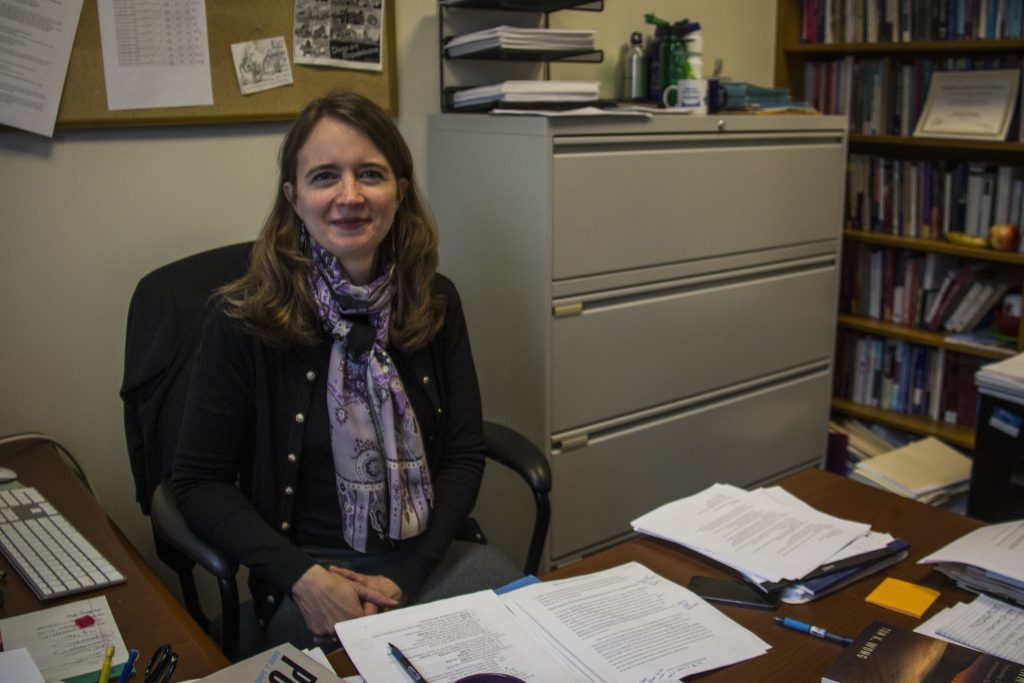GW faculty are among the more than 14,800 university administrators, faculty and staff members that have signed an online petition condemning President Donald Trump’s executive order banning seven Muslim-majority countries’ citizens from entering the U.S.
As of Tuesday evening, 27 faculty members have signed the petition that formally states their disapproval of the order and their support for its repeal. The professors said the immigration ban will damage GW’s diversity as well as the U.S.’s image and interests.
There are currently 73 GW students, faculty and alumni directly affected by the ban.
Kimberly Morgan, a professor of political science and international affairs who signed the petition, said she is worried Trump’s order will damage classroom diversity and hinder GW’s push to enroll more international students.
“This kind of measure sends a message to the world that the U.S. is becoming a more closed, isolated and intolerant place,” she said. “That runs contrary to values encouraged in higher education, and certainly goes against the push by many universities, including GW, to open ourselves to the world.”
Although Morgan and other faculty members said they doubt the Trump administration will respond to the petition, they still felt it was necessary to make their voices heard.
The petition also called for a nationwide day of action Feb. 1 when academics will contact their representatives to tell them about the petition and its goal of ending the ban.
“It is hard to have influence over what happens in the White House, but it is essential that scholars take a stand against bad policies,” Morgan said.
Other petition signers include 50 Nobel Laureates, 443 Members of the National Academies of Sciences, Engineering and Arts and tens of thousands of faculty and staff from other universities.
Sarah Shomstein, an associate professor of cognitive science, said she felt that the petition serves more of a symbolic purpose than a practical purpose.
“I don’t think this petition is more important than petitions that are being circulated and signed in other communities. However, this one is important to me because it is coming from my community,” Shomstein said.
She added that although the order does not directly affect her field, it could lessen the diversity in her classroom.
Tadeusz Zawidzki, the chair of the philosophy department and a child of immigrants who signed the national petition, said he is not normally very political but the discriminatory nature of the order pushed him to act.
“I want to stress how incredibly, blindly cruel this is. There is literally nothing gained from this, no danger to Americans is in any way diminished and it’s actually likely increased,” Zawidki said. “It’s just arbitrary cruelty. How anyone can stand by and turn a blind eye to this is completely beyond me.”
Other faculty and administrators are taking their own actions to oppose the ban. University President Steven Knapp said in a statement Monday that administrators are working to find out who at GW will be affected by the ban.
And the Faculty Association – an alternative body to the Faculty Senate – is gathering signatures from faculty members in support of those on campus who are targeted by the executive order. Signatures will be collected until Thursday, at which point the names and departments of people who signed it will be released.
Katrin Schultheiss, the chair of the history department, said the petition had more than 500 signatures by Wednesday evening.
Immediately after Trump’s announcement, Schultheiss and her colleagues wanted to let those impacted by the ban know they’re supported on campus, she said in an email.
“I think many people, myself included, are angry and feeling helpless in the face of this measure that punishes some of the most vulnerable people on the planet,” Schultheiss said. “I thought it was important to say to those on our campus who are frightened or unsure of what the future holds for them in the U.S. that there is a long list of people who are here to support you and here are their names.”





